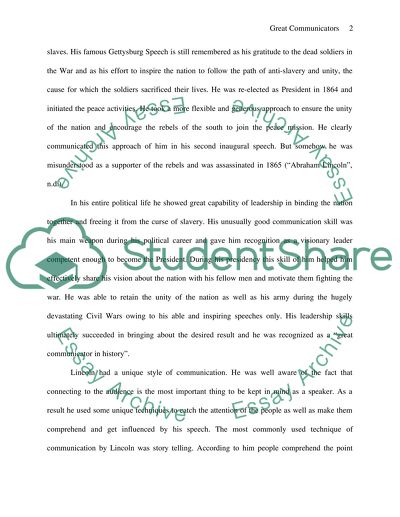Cite this document
(Great Communicators in History Term Paper Example | Topics and Well Written Essays - 2250 words, n.d.)
Great Communicators in History Term Paper Example | Topics and Well Written Essays - 2250 words. Retrieved from https://studentshare.org/social-science/1548166-great-communicators-in-history
Great Communicators in History Term Paper Example | Topics and Well Written Essays - 2250 words. Retrieved from https://studentshare.org/social-science/1548166-great-communicators-in-history
(Great Communicators in History Term Paper Example | Topics and Well Written Essays - 2250 Words)
Great Communicators in History Term Paper Example | Topics and Well Written Essays - 2250 Words. https://studentshare.org/social-science/1548166-great-communicators-in-history.
Great Communicators in History Term Paper Example | Topics and Well Written Essays - 2250 Words. https://studentshare.org/social-science/1548166-great-communicators-in-history.
“Great Communicators in History Term Paper Example | Topics and Well Written Essays - 2250 Words”. https://studentshare.org/social-science/1548166-great-communicators-in-history.


